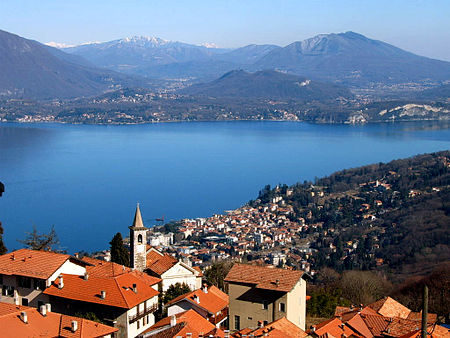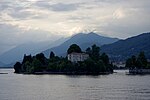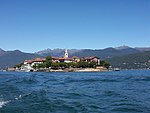Province of Verbano-Cusio-Ossola

Verbano-Cusio-Ossola (Italian: Provincia del Verbano Cusio Ossola [verˈbaːno ˈkuːzjo ˈɔssola]) is the northernmost province in the Italian region of Piedmont. It was created in 1992 through the fusion of three geographical areas which had previously been part of the Province of Novara. The area flanking the western shore of Verbano (or Lago Maggiore) forms the eastern part of the province; Cusio (or Lago d’Orta) and its environs form the southern part; while the north and west of the province consist of the Ossola, a region of Alpine mountains and valleys. The ISO code for the province is VB. The province has a total population of some 160,000, distributed over an area of 2,255 square kilometres (871 sq mi), with the biggest population centres being its capital Verbania on the shores of Lago Maggiore, Domodossola the main town of the Ossola, and Omegna at the northern end of Lago d’Orta.
Excerpt from the Wikipedia article Province of Verbano-Cusio-Ossola (License: CC BY-SA 3.0, Authors, Images).Province of Verbano-Cusio-Ossola
Corso Nazioni Unite,
Geographical coordinates (GPS) Address Nearby Places Show on map
Geographical coordinates (GPS)
| Latitude | Longitude |
|---|---|
| N 45.933333333333 ° | E 8.5333333333333 ° |
Address
Corso Nazioni Unite
Corso Nazioni Unite
28900 , Pallanza
Piedmont, Italy
Open on Google Maps








